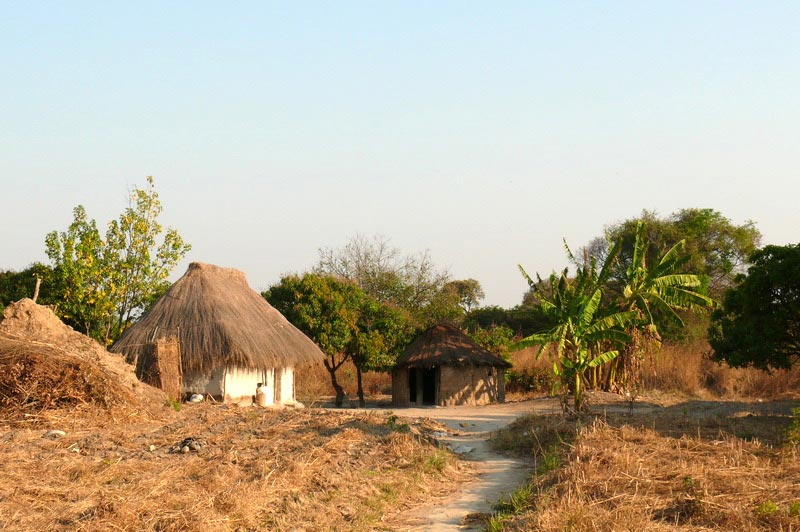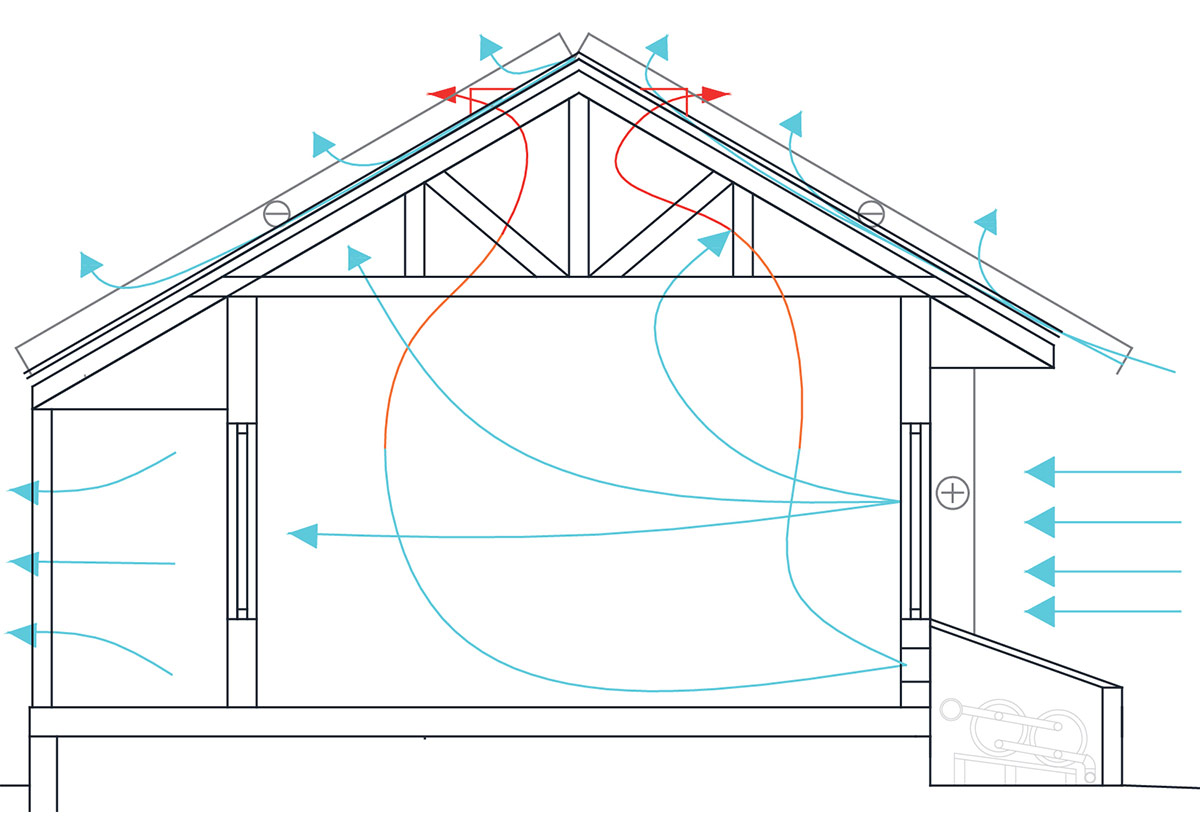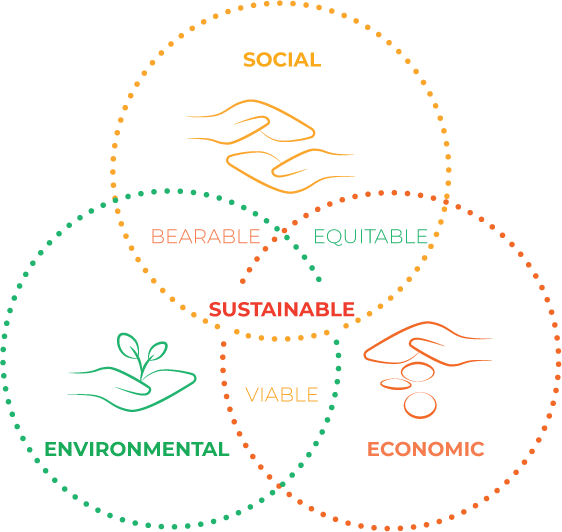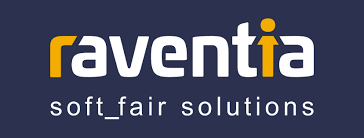Looking Back on Our Beekeeping Mission
Our beekeepers returned from honey mission just before Christmas, and now is the right time to look back on their time in Kashitu.

Our beekeepers returned from honey mission just before Christmas, and now is the right time to look back on their time in Kashitu.
At the turn of November and December, we took part in several Christmas markets and sales held after church services, offering products from Africa. Thanks to the involvement of volunteers, we were able to introduce the Kashitu project to a wider audience, establish personal connections with visitors, and at the same time raise financial support ...
This autumn, a group of three adventurers set out for Kashitu. Radek – an experienced beekeeping teacher – and his two assistants, Sofi and Andrea, met for the first time at Václav Havel Airport in Prague. Even a canceled flight didn't stop their mission. When they finally saw the faces of their teammates for the next three weeks,...
News from Zambia sounds optimistic – work goes on in Kashitu! Sewing machines are running at full speed, solar panels are supplying energy not only to the workshop, and beekeepers are preparing for the next big step. Every day brings a small step towards greater self-sufficiency.
This year, on October 18 and 19, the Maker Faire festival took place in Brno for the fifth time. It is an event supporting the creative and technological community, popularizing modern technologies and a creative approach to problem solving.
After this year's challenging summer in Zambia, a post-return team-building event was held, where participants shared their experiences and feelings from Kashitu and evaluated the past season together. Current volunteers also had the opportunity to meet former volunteers and share their experiences.
We are designing the first educational building, which will include a laboratory and a classroom.
The classroom is designed for 40 students and a lecturer. In the lab, there will be a beekeeping workshop, used during the season to process honey and wax from beekeepers in the broader area, and also to educate about beekeeping. We aim to provide beekeepers with quality technology to separate wax from honey, which is currently not possible in Kashitu. The local community will use the funds from honey processing to finance the construction of campus buildings.
In Zambia, classrooms often serve multiple purposes. Therefore, the lab will also function as a classroom for regular teaching throughout the year.
To facilitate a good indoor environment in the classrooms, it is necessary to establish a backup electricity source. Those who have been following us know that we have been impacted by electricity outages nearly every day, which has interrupted our work. This is the reason we are working on a project for a photovoltaic power plant with a battery storage system, using the roofs of already built structures and the new planned classroom.
While this won't be enough to power large machines, it will allow us to use lighter tools during outages. This is crucial since we are only in Kashitu for a few months of the year.
In the summer of 2024, we opened a sewing and carpentry workshops. Throughout the year, the local teams have been actively working and improving their skills. Their products are being sold at the local markets, and you can also find them at various beneficiary sale events in Czechia or on our e-shop. In the summer of 2025, we are planning to further broaden the skillset of the workshop teams and deepen their collaboration. The sewing workshop will be preparing the beekeeping suits to be used by the beekeepers in the new lab.


In the summer of 2024, together with the Zambian community, we built a multifunctional family house that will serve as housing for a teacher. At the same time, we used the project as a training opportunity for local workers, who learned how to build with unfired pressed bricks without using a concrete skeleton. Step by step, we're heading toward our goal: reaching the point in which the local workers can independently construct load-bearing walls from pressed bricks, reinforce them in key areas, and properly connect them to other building structures.
Eleven local volunteers worked with us on-site every day, learning each step of the building process through hands-on experience.
What's more, the knowledge they gained can later help them secure housing for themselves or earn an income by building houses for others. To our delight, this led to the construction of a small family house in the autumn of 2024, built by Boid, the leader of the Zambian construction team. Thanks to this new home, Boid can now live close to his family while continuing to work on construction projects with us.
The design of the model house combines the functions of each traditional Zambian building while meeting Zambian standards. The secondary school buildings are standardized and therefore the teacher houses are also of a given size and layout as mandated by the Zambian government.
The building was only possible because of our generous donors and a grant from the Czech Embassy in Zambia. Big thanks to all of you who supported us!

In the summer of 2023, we built the first workshop building in Kashitu together with the locals. The chosen technologies were tested and the cooperation with the local community was verified. This was a great experience for us, which we will benefit from when planning the next phases of the project.
However, everything did not go as we had planned. Our patience in transporting the brick presses from the Czech Republic to Zambia was put to a great test. Within the two-month delay we had to go through a huge amount of paperwork, arranging and bureaucracy, but in the end everything went well and the presses arrived on site... Due to the delay in delivery we had to modify the structural system of the building on the fly to a concrete frame with brick infill, reducing the planned amount of bricks used. This reduced the brick consumption by half and allowed the building to be completed before the rainy season. In the next phases, the building will serve not only as a workshop but also as a technical base for further construction phases.
Already the workshop building is serving the local community, as it is being used for the production and storage of new bricks for construction in the summer of 2024. It is also being used by carpenters from the local community. We are delighted with the progress of the project and look forward to adding the multi-purpose building in summer 2024. For a detailed story on the construction of the Summer 2023 workshop, please see the News section.

New Renato Community Society is a local non-profit organisation that has established and runs a kindergarten and primary school with great success thanks to volunteers and government teachers. Rural development and education in the area is the organisation's main goal. Trainers teach the people of the local community about beekeeping, agriculture, education, health care, youth development, and good nutrition.
The Kashitu area is sorely lacking a secondary school that would contribute significantly to the development of the entire area. Graduates of this educational institution would help to develop new business opportunities and trades and realise their potential.
Education is a key element of every development. Secondary education is most needed in rural areas. A countrywide lack of schools causes villages to be left behind in development in Zambia. Furthermore, it greatly exacerbates unemployment, low job opportunities, and economic dependence.
LOCAL COMMUNITY

The community of vibrant and experienced locals has had the main initiative for regional development. They came up with the idea of building the school. All their requests and needs are one of the key aspects of the design and building process. Local organisation New Renato Community Society is eager to operate the school after its completion.
NATURAL RESOURCES

The majority of the materials for school construction are possible to resource locally. Preferable materials are those that are renewable, easy to use, and traditional.

The secondary school in Kashitu is designed for 5 years study.
> The capacity of the school is 250 students.
> 14 local teachers and 8 volunteers from Europe will provide lectures.
> The campus offers accommodation for students and teachers.
> Campus entrance is located next to the nearby highway and the train station.
There are buildings with classrooms, on the right side common classrooms and on the left classrooms for teaching agriculture, nutrition, and tailoring together with laboratories for physics, chemistry, and biology. Behind the laboratories, there is a kitchen with a dining hall. Carpentry and metal workshops are located on the side so they do not disturb the surrounding teaching with their noise as little as possible. The centrepiece of the school is a circular building with a chapel and library.
The boarding concept of the school allows for extended accessibility to education for students from more distant locations. For them, the boys' and girls' dormitories are designed, they are oriented to the central courtyard and equipped with all the necessary facilities - sanitary facilities, study rooms, rest and leisure rooms.
There are buildings for teachers and their families in the back of the campus to provide peace and privacy. They are designed as semi-detached or detached houses, including small fields for growing their own crops and vegetables. Two individual houses are designed for volunteers providing teaching, each for four volunteers.
The burnt and unburnt bricks are traditional building materials in Zambia. Unburnt bricks are usualy used for residential buildings, burnt bricks for public buildings. However, brick burning is very demanding on need for or wood which is not only very limited in Zambia but as well let to deforestation. Therefore, we have decided to use unburnt bricks and increase their durability and load-bearing capacity by adding cement. The shape of the bricks produced resembles lego blocks, which fit together easily and speed up the construction of the building. These bricks can be easily made with a manual brick-press machine only.

The brick production begins by sifting the clay through a 5x5 mm sieve. This clay is then mixed with cement (5%) and sand. The resulting mixture is then fed into a manual brick-press machine where it is compacted and brick is produced. This brick is carefully removed from the brick-press machine and stored to slowly age in 28 days.
"16 250 Bricks and 23 Days Production Time for one School Building"
The traditional technology of simple molds with little compression force used commonly by local people was a starting point to develop improved manual brick-press machine. Traditional unburnt bricks are susceptible to termite infestation unless they go through the firing process. These bricks are poorly load-bearing and do not withstand the weather (wind, rain). Buildings made of these bricks have to be rebuilt after 15 to 20 years.
Compared to a simple molds, our brick-press machine allows higher compression force, production of two bricks at once and thanks to the reservoir it is not necessary to dose the mixture for each compression separately. Production is faster and the bricks are stronger and more durable. The use of cement in combination with the brick-press machine enables the production of bricks that are dimensionally stable, sufficiently strong and resistant to the weather and natural conditions.
"The brick press machine allows the production of approximately 30 bricks per hour."
The manual brick-press machine is mobile and very easy to transport to a specific location. The pressing force is at least doubled thanks to the new pressing mechanism. The new design also allows better cleaning and maintenance of the machine. The brick press is composed of individual parts that can be assembled into a compact form for handling or transport. Each of these parts can be replaced and the entire machine does not require any electrical power or replacement of worn parts to function. Should any part fail, it can be easily replaced with available spare parts.
Buildings made of pressed bricks have a long tradition in Zambia. Their dimensions are a relic of the colonial era (imperial units). Our bricks use the metric system, which is now common practice in Zambia, and have a permanent and precise shape due to the cement addition.
The holes in the bricks allow easy placement of building services or reinforcement and concrete filler. The reinforcment increases rigidity and load bearing capacity.
The shape of the bricks, reminding of LEGO bricks, is used to improve the construction conditions. It allows dry construction of masonry structures, reduces construction time and is intuitive to use even for non-expert builders. Anyone can work with these bricks after a short training. This construction technology will help the local community to be able to build their own school, more efficiently and at a lower cost.
The entire construction of building structures made of this material has been tested in the laboratories of the Faculty of civil engineering of the Czech Technical University in Prague.



Building foundation is designed as strip footing made of concrete and stones from a nearby quarry. Building floors are made of concrete for its durability and resistance.
Walls are designed from unburnt bricks that fit together like lego, so it is not necessary to use mortar. Holes in the bricks allow placement of building services or reinforcement and concrete filler. Termite protection is very important, and it is ensured by the cement in the brick mixture.
The load-bearing structure is made of timber truss beams. Clay cassettes are placed under the metal sheet roof covering, which shields the noise from the rain and improves the thermal stability of the interior.
Available drinking water is important to prevent health risks and to contribute to area development. The water system is a combination of existing boreholes, and a rainwater harvesting system that is designed to collect, treat, and preserve rainwater for later use.
Rainwater is collected from metal sheet roof to the eaves channels and through the first-flush diverter to the gathering tank. The water passes from the gathering tank to the drain tank through sand filtration where several sand and gravel layers clean the water from pollutants. Clean water is gathered to the plastic barrels where it is ready for use. Water distribution is provided by a pumping system that also prevents water from contamination.
Filtration units are composed of several layers, that clean water from all the pollutants. Individual units of the sand filter can be removed and cleaned. Biologically caused contamination can be supplemented by UV light cleaning process.
Natural ventilation is an effective strategy to provide fresh air and to improve thermal comfort. It helps students to achieve their full potential. There are essentially two types of natural ventilation in buildings: cross ventilation (wind-based) and aeration (driven by temperature difference).
Cross ventilation - wind moving around a building creates areas of high and low pressure. The windward side of a building is an area of high pressure while the leeward side and roof are of low pressure. Therefore the widows located on the opposite building sides cause air to move through the building and provide required fresh air.
Areation - moving element of the air flow is the difference of the air temperatures of the intake and outtake points. Outside air is getting to the system in the windward side of the building. Air is cooled in the reservoir space and heated by sun warming up and goes up to the roof. Air movement can be controlled by sliding the elements that connect the reservoir to the building.
The Kashitu Secondary School project has been seen from the very beginning in a broader context with the inclusion of sustainability principles. The aim of the project is to provide quality education and improve the overall standard of living in the Kashitu area, to encourage environmentally friendly development and to expand business opportunities in the locality.
Simple school construction technology using local and affordable materials.
Production of bricks with innovative technology can lead to new business opportunities in the locality.
The use of mainly local renewable materials is environmentally friendly.
Collecting rainwater and treating it to drinking water quality saves natural resources and helps prevent health risks.

The school is run by the local community with the support of volunteers from Europe and a solidarity approach in payment of school fees for children from higher income families.
Properly designed water management, building ventilation and lighting leads to reduced operating costs and conservation of natural resources.
The quality of the school environment leads to improved learning outcomes, supports the healthy development of children and creates a positive relationship with the place.
The Land of Victoria Falls was for a long time Northern Rhodesia under the administration of Great Britain. In 1964 it became independent and became a presidential republic. Zambia is one of the developing countries, its industry is mainly based on mining and processing of natural resources. Most of the agricultural land is dependent on rainfall and its cultivation is characterised by a lack of mechanisation.
HIV and malaria remain major problems in Zambia. Approximately 16 000 people die of HIV each year and approximately 2 000 people succumb to malaria each year. Other health problems are caused by the lack of access to potable water.
Area
Population (estimate 2020)
Urbanization (2018)
People living below the poverty line (2015)
Average age (2018)
Number of ethnic groups
GDP per capita (2019)


Primary education is available for 90% of Zambian children. It is free of charge and it lasts 7 years. Private, state, or community schools are available in Zambia. It is common to travel long distances to school in rural areas.

Secondary education is available for only 25% of the population. Tuition together with school location in large cities are two main reasons for low secondary education availability.

Financial reasons are the main cause of very low university education availability. There are 3 colleges and several universities in Zambia. Tuition has to be paid at all universities.
Zambia is located in the centre of the African continent in sub-Saharan Africa. Most of the country is located on a plateau with an altitude of over 1 100 m above sea level.
Between November and April, almost all the year's precipitation falls and average daily temperatures range between 20-25°C. The period from May to August is cool and almost without rainfall. This period is followed by a sharp rise of temperatures during September and October, but again with almost no precipitation.
Due to the nearness of the equator, day length is approximately the same throughout the year. The hottest month of the year is October, when the average daily temperature reaches up to 30°C, while the coldest month is July with an average daily temperature of around 11°C. The prevailing winds throughout the year are from the east at around 3 m/s.
Traditional architecture in rural areas of Zambia is determined by climatic conditions and way of life, characterised by small detached houses, each with its own specific function. One family usually has two houses for sleeping, one for cooking and one separate toilet, and sometimes pets have their own house.
Insaka, the house designed for cooking, is the place for family life and welcoming guests. The building is usually round in plan, partially open, with a space for an open fireplace in the centre. The wall of the insaka is made of unburnt bricks and wooden profiles, and the space is usually covered by a reed roof.
The most well-maintained houses have a square plan, small windows and are intended for sleeping, the walls of which are made of unburnt bricks and plastered with clay. The roof is of reed, and occasionally corrugated iron can be seen instead of reed.
with which we will work.
who will go to Zambia.
after which we will work.
that we will have to make.

Our project is supported by